3rd September, Friday
05:00 pm – 06:45 pm
Keynote lecture 1 followed by discussion: Jill Adler, University of the Witwatersrand, South Africa
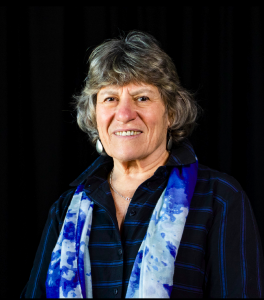
Title: Exemplifying and explanatory communication – two key tasks of teaching and a framework for their use in mathematics teaching
Abstract: Two key tasks of mathematics teaching, at all levels, are exemplifying mathematical concepts and practices, and communicating full explanations of these ideas. These key tasks form the elements of the Mathematics Discourse in Instruction (MDI) framework that we use for working on teaching in mathematics professional development in South Africa. Every teacher does this kind of work every day, but doing this well is not always obvious. In this presentation I will show (1) how using a variation to build example sets in a lesson, and this includes how examples and their related tasks are represented, provides for rich opportunities to learn mathematics; and (2) how and why attention to word use, and the quality of mathematical explanations in teaching add to these rich opportunities. I will conclude with some implications for working with the MDI framework in mathematics teacher education and professional development.
About the speaker: Jill is a Professor of Mathematics Education in the Wits School of Education and the 2017-2020 President of the International Commission on Mathematical Instruction (ICMI). She held the SARChI Mathematics Education Chair at the University from 2010-2019. Jill has spearheaded several large-scale teacher development projects, the most recent, within the Chair ambit, begun in 2009, is called the Wits Maths Connect Secondary project. This work builds on her research on teaching in multilingual classrooms and teacher professional development. Jill is a Visiting Professor of Mathematics Education at King’s College London, UK. She is the recipient of numerous awards, the most significant of which is the 2012 Academy of Science of South Africa (ASSAf) Gold Medal for Science in the Service of Society, and the 2015 ICMI Hans Freudenthal medal in recognition of a major cumulative program of research. To know more about her work, click here.
Co-ordinator: K. Subramaniam, (HBCSE, Mumbai)
4th September, Saturday
10:30 am – 12:00 pm
Teacher’s Voices: The challenges, efforts, and innovations Mathematics Teachers undertook to achieve successful teaching (For School Teachers)
Title: Teachers discourse on mass school closure: An enquiry
Abstract: Pandemic has led to mass school closures for more than a year now. The last academic year was full of anxieties and was spent responding to the unprecedented challenges of school closures. Teachers did their best and worked beyond the call of duty. The shift to the e-medium was not smooth as it brought a range of challenges and created inequities in opportunities to learn. Teachers responded with innovative ways to combat the loss of learning and ensured ways to stay connected with their students in one way or the other. The support was not just limited to academics but was extended to help students and their families in these challenging times. This year, as we are still in the clutches of another devastating wave of the pandemic, teachers are responding to a new set of ideas and issues. In this session, we look forward to enquiring about those issues, challenges, experiences, and deliberations undertaken by our teachers.
Co-ordinator: Shweta Naik (HBCSE, TIFR)
 Ms. Chanchal Yadav, a primary School teacher of Delhi will share her experiences of reaching out to her students coming largely from underprivileged backgrounds. Ms. Chanchal Yadav, a primary School teacher of Delhi will share her experiences of reaching out to her students coming largely from underprivileged backgrounds. |
 Ms. Gowri Thyagarajan, a Senior School teacher in Chennai, will share her narrative on teaching mathematics to students from resourceful families. Ms. Gowri Thyagarajan, a Senior School teacher in Chennai, will share her narrative on teaching mathematics to students from resourceful families. |
 Ms. Neha Agarwal, a Senior School teacher in Delhi, will discuss the challenges of teaching mathematics and relationship building with senior school students. Ms. Neha Agarwal, a Senior School teacher in Delhi, will discuss the challenges of teaching mathematics and relationship building with senior school students. |
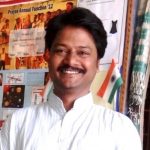 Mohammad Umar, from Azim Premji Foundation, will walk us through his journey of strengthening teachers’ agency in reaching out to children living in far-flung villages and how they managed to even accelerate the vaccination drive in the villages. Mohammad Umar, from Azim Premji Foundation, will walk us through his journey of strengthening teachers’ agency in reaching out to children living in far-flung villages and how they managed to even accelerate the vaccination drive in the villages. |
12:15 pm – 01:45 pm
Pedagogy and Technology in College Education during the Pandemic
Abstract: In this session, the speakers will chalk out the interesting experiences and experimentation that teaching mathematics at UG and higher levels have entailed during the pandemic. Moreover, the use of some available low-cost technology in effective learning and evaluation in online mode will also be discussed.
Co-ordinator: Bhaba Sarma (IIT, Guwahati)
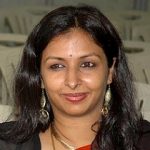 Geetha Venkataraman, Ambedkar University, Delhi, Geetha Venkataraman, Ambedkar University, Delhi,
Title: Teaching mathematics: Experiences during Covid times |
 D. Sukumar, IIT Hyderabad D. Sukumar, IIT Hyderabad
Title: Effective methodology in an online classroom and use of online resources for students’ learning |
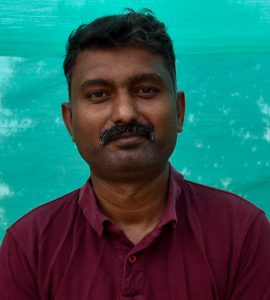 A. Chandrasekaran, Central University of Tamil Nadu A. Chandrasekaran, Central University of Tamil Nadu
Title: Use of technology in effective learning and assessment on online platforms |
03:15 pm – 04:45 pm
Workshop on Digital technology and online resources
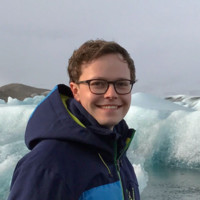
One of the goals of MTA(I) is to bring new resources to the attention of the teachers of mathematics. To this end there will be workshops on the use of technology in school and college education. We are especially excited to announce a workshop conducted by Philipp Legner, CEO and Developer of Mathigon on learning mathematics with virtual manipulatives (Mathigon) on 4th September.
To know more about the workshop, click here.
Co-ordinator: Jonaki Ghosh (Lady Shri Ram College, Delhi)
05:30 pm – 07:00 pm
Keynote lecture 2 followed by discussion: Ken Ono, University of Virginia, USA
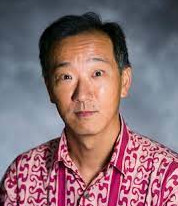
Title: Why does Ramanujan, “The Man Who Knew Infinity”, matter?
Abstract: This lecture is about Srinivasa Ramanujan, “The Man Who Knew Infinity.” Ramanujan was a self-trained two-time college dropout who left behind 3 notebooks filled with equations that mathematicians are still trying to figure out today. He claimed that his ideas came to him as visions from an Indian goddess. This lecture is about the many reasons that Ramanujan matters today. The speaker is an Associate Producer of the film “The Man Who Knew Infinity” (starring Dev Patel and Jeremy Irons) about Ramanujan. He will share several clips from the film in the lecture as part of the presentation.
About the speaker: Prof. Ken Ono is a Thomas Jefferson Professor of Mathematics at the University of Virginia. He works in number theory, especially in integer partitions, modular forms, Umbral moonshine, the Riemann Hypothesis, and the fields of interest to Srinivasa Ramanujan. He is Chair of the Mathematics Section of the American Association for the Advancement of Science, and Honorary Professor at the Indian Institute of Technology (Guwahati). He is actively involved in mentoring young mathematicians of all ages. To know more about his work, click here.
Co-ordinator: R. Ramanujam (IMSc, Chennai)
5th September, Sunday
11:00 am – 12:30 pm
Keynote lecture 3 followed by discussion: Mahan Mj, TIFR, Mumbai
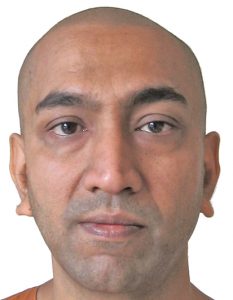
Title: Combining probability and hyperbolic geometry
About the speaker: Prof. Mahan MJ is a mathematician at the TIFR, Mumbai, and a monk of the Ramakrishna Order. He specializes in geometry and its sister subject – topology – also called rubber-sheet geometry. He is a recipient of the 2011 Shanti Swarup Bhatnagar Award in Mathematical Sciences and the Infosys Prize 2015 for Mathematical Sciences. To know more about his work, click here.
Co-ordinator: R. Ramanujam (IMSc, Chennai)
12:30 pm – 01:45 pm
MTA General Body meeting
The General Body meeting is open only to MTA members.
Co-ordinator: S. G. Dani (UM-DAE, CEBS, Mumbai)
03:00 pm – 04:30 pm
Discussion: The pandemic and mathematics education
Reopening of schools and colleges, coping with reduced teaching in the past year, preparedness of students for college
Title: The challenges in recovering from the major educational disruption
Abstract: The discussion will be on the challenges facing schools and colleges resuming after lack of classes, or reduced sessions, or ineffective online sessions during the last academic year. While this is a problem across disciplines and stages, this is acute in mathematics where the curriculum is shaped like a tall tower, concepts, and techniques built on one another. At the best of times, assuming that the entire class has the prerequisites assured by the syllabus of the previous stage is unrealistic, now it is indeed perilous. This brings us to what has always been the perennial challenge of mathematics classrooms, namely, addressing multiple levels of preparedness and inclination and individualizing learning.
The panel will discuss the challenges stage-wise, elementary (Ranjani), secondary (Athmaraman), and undergraduate (Maya).
Co-ordinator: R. Ramanujam (IMSc, Chennai)
| R Athmaraman, among the most respected mathematics teachers in Tamil Nadu. He has been inspiring generations of children and plays a major role in AMTI. |
Sriranjani Ranganathan (ranjani), with Krishnamurti Foundation Tribal Schools (KFI tribal schools), has two decades of experience in education across many areas: curriculum development, teacher education, use of tech tools, and has worked with communities of school teachers in Andhra, Karnataka, Telangana, and Assam. |
| Maya saran, a mathematical logician, is a teacher at Ashoka university, passionately committed to reimagining undergraduate mathematics education. |
04:30 pm – 05:30 pm
Cultural Programme and Vote of Thanks
Cultural events generally include performances or displays of artistic expression, often by renowned artist/s. However, a pandemic version of a cultural event is going to be a collage of performances from the participants. Participants can sing, play an instrument, read poetry, read significant texts, share their art (sculpture, photography, paintings, etc.) for about 5-7 minutes. They can volunteer during the session or send an email in advance to the conference id:mtainconf@gmail.com
Co-ordinator: Shweta Naik (HBCSE, TIFR), Harita Raval (HBCSE, TIFR)
